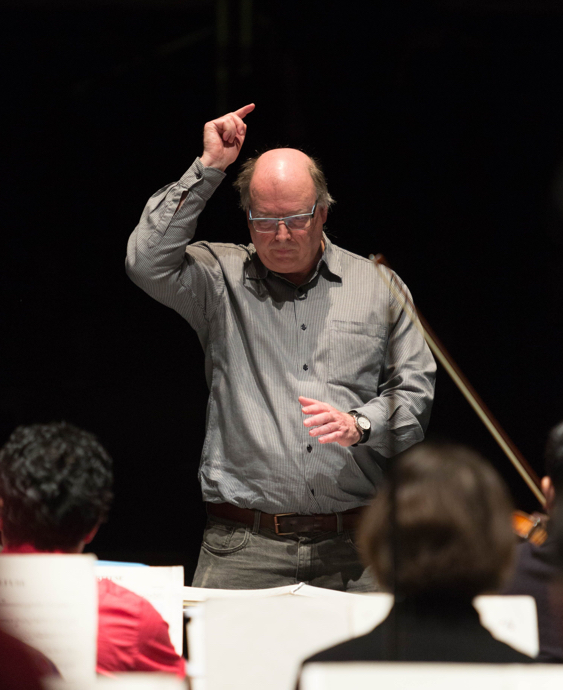
The Cello Concerto for solo cello and an ensemble of twelve instruments was written for cellist Ariel Barnes and the Turning Point Ensemble of Vancouver. The work, in three movements, plays with notions of memory and the assemblage and juxtaposition of musical objects of multiple characters and styles. The first movement, entitled The Curio Box was originally written as a separate work, commissioned by Vancouver New Music and premiered in 2014 with Rebecca Wenham as the soloist. Curio Boxes during the Qing Dynasty were ingeniously designed with as many as 48 hidden compartments. On the outside, they are intricately constructed travel cases with decorative panels featuring gold inlay, mother of pearl, carved sandalwood, or painting. The boxes open mysteriously revealing multiple levels and small compartments containing precious objects such as miniature paintings, poems, scrolls, calligraphy, timepieces, jade, porcelain or bronze representing different cultures and historical periods. The idea of the curio box seemed to me quite musical in the way that musical memory often contains musics of different places, timeperiods, and expressions. The movement at first imagines a mysterious exterior which opens to reveal seven different musical objects, concluding with the reassemblage of the box. The second movement The Impossible Return references the opening melody and material which return to the end of the movement in a new way, this time featuring the solo cellist. Our memory of important events in our livesis often rich and detailed but inspite of our wishes or experience, we can never truly return to the same place. The third movement has similarities to the first in its polystylistic approach but in this case the music is assembled in combinations of motives and parts that are layered and played with, continually generating new material and ideas.My thanks to Ariel Barnes and the Turning Point Ensemble for their inspiration and support of this work.
Homecoming Ode 歸去來辭
Homecoming Ode is a new composition written for two members of Turning Point Ensemble – bassoon (Ingrid Chiang), harp (Janelle Nadeau), and two members of Little Giant Chinese Chamber Orchestra – pipa (Ying-Chun Chen) and sheng (Wan-yu Chang). The combination of two wind instruments and two plucked instruments appealed to me as an opportunity for both blending and contrast.
This work is part of a series of pieces I am composing that include Chinese traditional instruments and are based on historical Chinese calligraphy. In this case, this piece alludes to The Homecoming Ode scroll which was created by Shen Du in the Ming Dynasty. This work is in the collection of the National Palace Museum in Taipei. The calligraphy is both bold and delicate. It refers to a famous earlier poem by Tao Yuanming which tells the story of purposefully rejecting court fame and wealth in order to return to a rustic and simple life in the countryside. The music, both peaceful and active, finally comes to rest at the end, at last a homecoming.
 Owen Underhill lives in Vancouver where he is active as a composer, conductor, artistic director and faculty member in the School for the Contemporary Arts at Simon Fraser University.
Owen Underhill lives in Vancouver where he is active as a composer, conductor, artistic director and faculty member in the School for the Contemporary Arts at Simon Fraser University.
As a composer, Underhill writes for diverse combinations including orchestra, voice and choir, and a wide variety of chamber music ranging from traditional ensembles to groupings of unusual instrumentation. He has a special interest in large-scale interdisciplinary collaborations, having composed a number of works for dance as well as his 1994 opera The Star Catalogues. Among his most recent compositions are Ten Miniatures (2013) for flute, cello and piano commissioned by the Novo Ensemble, The Curio Box (2014) for solo cello and ensemble commissioned by Vancouver New Music and String Quartet #4: The Night (2011) commissioned by the Quatuor Bozzini. His Canzone di Petra (2004), a piece for flute and harp commissioned by Heidi Krutzen and Lorna McGhee, was the winner of the 2007 Western Canadian Music Outstanding Composition Award. His orchestral work Lines of Memory won first prize in the 1994 du Maurier Canadian Composers’ Competition and his Love Songs was nominated for a Juno in 2002. His music has many different expressions and has been described as dense and interesting, colourful, lyrical in inspiration, exuberant and witty, subtle, and thoughtful.
His compositions have been performed by leading music organizations in Canada including Arraymusic, Quatuor Bozzini, the St. Lawrence String Quartet, Esprit Orchestra, Vancouver Cantata Singers, musica intima, the Vancouver Symphony, Vancouver Bach Choir and the Turning Point Ensemble. International performances have included the premiere of two chamber works by the CrossSound Festival in Alaska, Boston performances by the King’s Chapel Choir, Arcadian Winds, and bassoonist Janet Underhill, and performances of Bagatelle and One Page Sonata in Bratislava, Slovakia. His music has been included on several recordings including his recently released disc Still Image on the Centrediscs label.
As a conductor, Underhill is a member of the Turning Point Ensemble, one of Canada’s most distinctive and accomplished large-size chamber ensembles. In addition, he has made conducting appearances with orchestras and ensembles including the Vancouver Symphony, CBC Radio Orchestra, National Arts Centre Orchestra, Vancouver New Music Ensemble, and musica intima. Underhill has been especially active in contemporary music and music of the early twentieth century. He has conducted well over 150 premieres by Canadian composers including Glenn Buhr, Christopher Butterfield, Michael Bushnell, Dorothy Chang, Chan Ka-nin, José Evangelista, Anthony Genge, Melissa Hui, Rudolf Komorous, Michael Oesterle, John Oliver, Rodney Sharman, Ana Sokolovic and Linda Catlin Smith. He has conducted works in collaboration with several prominent international composers including Louis Andriessen, Gavin Bryars, Sofia Gubaidulina, Giya Kancheli, James MacMillan, Steve Reich, Toru Takemitsu, and Judith Weir. Underhill’s discography as a conductor includes a recording of the music of Gavin Bryars with the CBC Radio Orchestra (CBC Records), two discs with the Vancouver New Music Ensemble (Centrediscs and CBC Records), and three recordings with the Turning Point Ensemble (“Liquid” on the ATMA label, “Strange Sphere: music of Rudolf Komorous” on the Artifact label, and “Disasters of the Sun: music of Barbara Pentland on Centrediscs). As a conductor, he is committed to bringing the composer’s vision off the page with directness and clarity. His conducting has been described as sensitive, vigorous, precise, and exhibiting panache.
Active as a programmer and promoter of contemporary music, Underhill was Artistic Director of Vancouver New Music from 1987 to 2000, a period of substantial growth for the organization. He is currently Artistic Director of the Turning Point Ensemble, a large chamber ensemble of outstanding Vancouver musicians dedicated to the celebration of twentieth century music and new music. He has been active as an arts advocate and supporter of Canadian music organizations, and has been active for many years with the Canadian Music Centre, serving as the President from 2010 – 2014.
Underhill has been an SFU faculty member since 1981, teaching music composition and conducting, and serving for a series of terms as Director of the School for the Contemporary Arts. He is currently Dean Pro Tem of the Faculty of Communciation, Art and Technology.
